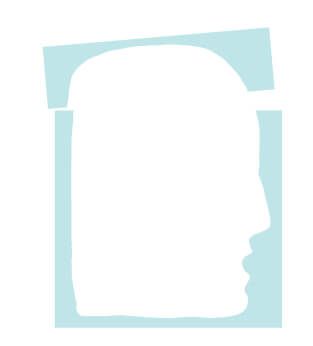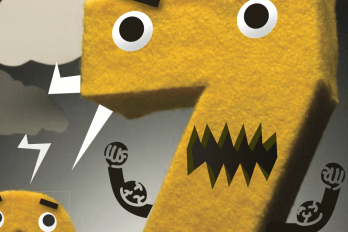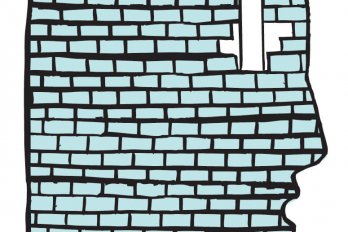
Hargeisa—Abdillahi Abdi has stripped naked and set his clothes and bedding alight. His shouts ring out across the courtyard of Hargeisa Hospital’s mental health unit, where patients doze on foam mattresses in the afternoon sun. They barely stir as orderlies douse the flames. Abdi has learned there’s a doctor visiting the ward, and he wants him to know the cia has bugged the place. When the doctor in question crosses the string of rag-piled beds to the smoking cell, the other patients rise and shuffle over: this, now, is something new.
“Ah-ah-s-s-salaam aleikum!” Stuttering and smeared with ash, Abdi shakes the doctor’s hand. Like most patients here, he has never met a psychiatrist. Words spill from his mouth in a torrent, as though he’s been waiting his whole life to unburden himself. The doctor, a jovial, greying Somali-Canadian named Aden Ismail, interrupts: how long has the cia been spying on him? Abdi isn’t sure. As they talk, in Somali, the young man grows calmer. Ismail hands him two tablets of chlorpromazine, an antipsychotic, and pencils his name into an appointment book.
“Probably bipolar,” Ismail says. “He believes he’s a freedom fighter and the American government is persecuting him. It’s a common delusion in this place. They see movies like Black Hawk Down and they fixate. I’m told he’s admitted to the hospital every few months.”
Ismail has been visiting Somaliland’s only mental health facility, which happens to be in his hometown, every year or two for nearly a decade. The de facto republic broke away from Somalia in 1991 after a brutal war of secession. Tens of thousands of people were killed during the four-year conflict, and half a million more fled across the Ethiopian border, most settling in refugee camps. Ismail himself lived in the camps for a time, before emigrating to Toronto in the late ’80s.
Though Somaliland is now relatively stable, rebuilding has been slow—the last refugee camp was dismantled just four years ago—and the scope of the war’s psychological toll is just beginning to register. “When I come here,” Ismail says, “I see a lot of veterans, a lot of women who lost children and husbands. The war acted as a trigger for incipient mental health problems, particularly schizophrenia.”
Much of the time, the psychiatric unit functions as a repository for the ill rather than a treatment centre. A high wall encloses the ward and divides it in two, separating men from women. The men sleep in an L-shaped dormitory furnished with beds and little else. The hospital depends on patients’ families to clothe them and subsidize their meals. When Ismail visits, there’s a rush to diagnose and treat as many people as possible. Abdi is one of 300 to 400 patients he’ll see during his month-long stay in the breakaway republic, which has no psychiatrists of its own.
Ismail meets Mohamad and his sister, Nura, in one of the small outbuildings clustered behind the main dorm. Mohamad has lived here on and off for the past three years. An obese man, he lies on a mat in the corner of his tiny room, sweat boiling off his impassive face. Murals of dried excrement cover the walls. Nura, who visits every week, is mopping the floor. The room is muggy with antiseptic.
A flicker of amusement animates her brother’s face. “I remember you—you’re the doctor from last time. You were here, let me see, it was May… two years ago.”
“Yes, yes, that’s about right. I’m surprised to see you here.”
“They discharged him,” Nura, a tall, cheerful woman, says in English. “But at home he was making life difficult for us.”
“I am angry for no reason. I smash things. I decided it was better for me here. There’s nothing to smash,” says Mohamad. When the doctor asks him about the past, he demurs. “The past is not interesting,” he says.
Ismail reckons that as much as two-thirds of Somaliland’s population has been afflicted by post-traumatic stress disorder, a condition that can masquerade as depression or bipolar disorder. As the political situation has improved and people have returned home from the camps, the long-suppressed trauma of the war has bubbled up. Patient visits to the ward have spiked.
“Six or seven years ago, all of the patients suffered from acute mental illness,” Ismail says. “Now I see more people like Mohamad. They’re hard to diagnose, because their symptoms are diffuse: anger, depression, malaise, insomnia. And it’s the tip of the iceberg. Most will never seek help. If they do, they go to a healer. Or they chew khat to make the problem go away.”
Somali culture understands mental illness as a sickness of the spirit brought on by outside forces, as something to be cured once and for all rather than managed. Like many patients, Mohamad first sought the help of a traditional healer to exorcise any jinn and lift any curses afflicting him. “It helped,” says Nura, “but then he started to break things again. The medication didn’t work either.”
“Those pills made my arms and legs hurt,” her brother says. Mohamad joins Abdi in the appointment book. The doctor also schedules a follow-up meeting with Nura.
The chlorpromazine tablets, supplied by the World Health Organization, are a stopgap, Ismail explains later. “It’s an effective antipsychotic, but it doesn’t work for everyone, and the side effects are bad.” If a patient has relatives in the West, Ismail will fax them the proper prescription so that they can fill it and send back the medication. A surprising number of patients get their medication this way, because so many Somalilanders emigrated during the war. But the majority receive the ministrations of a healer, chlorpromazine, or nothing at all.
It’s late afternoon now, and the patients have abandoned the courtyard for the shelter of the dormitory. The riddles they’ve left behind express the ward’s story better, somehow, than a doctor ever could: a cup of water filled to the brim and set neatly in the dust, the blackened remains of Abdi’s mattress, the contents of someone’s stomach. A pair of trousers crumpled in a fringe of grass. Again, a few men spot Ismail and, rising stiffly to their feet, emerge from the shade. By the time they shuffle over, though, he will be gone, at least for today.




